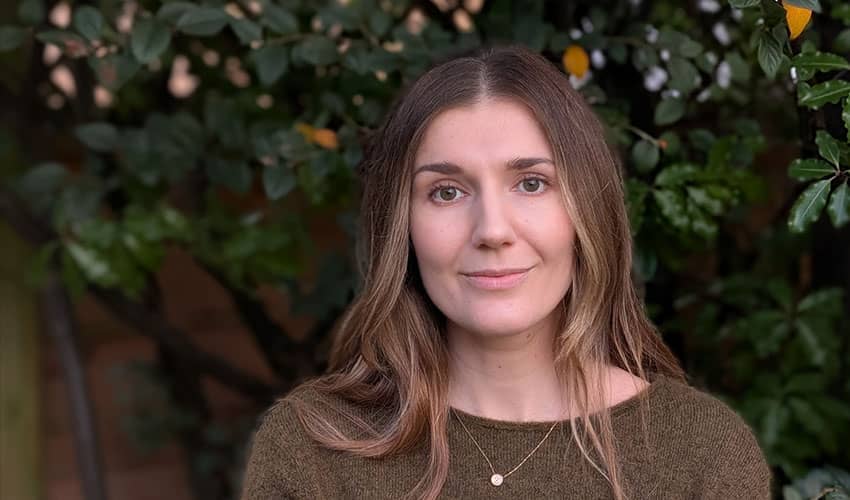Funding secured to help understand how young people experience the climate crisis

The Centre for Water, Communities and Resilience at UWE Bristol has been awarded funding for a project to learn how young people across Europe experience the climate crisis and develop agency to promote change.
Research teams from four countries will work with young people, teachers, educational institutions and youth groups, on a new project aiming to generate new knowledge of how young people experience and make sense of climate complexity.
The £511k funding from JPI SOLSTICE and the Economic and Social Research Council (ESRC) will fund research with partners in Ireland, Italy and Finland to address eco-anxiety among young people and empower them to address the value-action gap in response to climate change.
Project lead, Professor Lindsey McEwen, Director of the Centre for Water, Communities and Resilience at UWE Bristol, said: “The voices of young people are critical in finding meaningful and effective ways to address the climate crisis.
“Increasing awareness of the impacts and effects of climate change, as well as the measures that can be taken to mitigate against it, is crucial in building an empowered and resilient climate-literate youth that can develop and support solutions now and in the future.”
The consortium draws together intercultural experience and asks young people to take part in research that will directly contribute to their personal development, confidence and resilience.
It is hoped the project will generate new impactful research evidence across cultures on the agency of young people as active citizens who can develop solutions and bridge intergenerational learning gaps.
Policy recommendations will be put forward and disseminated widely among policy-makers and other stakeholders, and best practice guidelines will enable knowledge exchange between participating countries and across Europe.
The recommendations and guidelines generated through the project, titled ‘Challenging the Climate Crisis: Children's Agency to Tackle Policy Underpinned by Learning for Transformation’ (CCC-CATAPULT), will assist with furthering climate education and action, and realising commitments toward international agreements such as the Paris Agreement and the Sustainable Development Goals.
Professor McEwen added: “Climate change is an existential threat that must be addressed through concerted action involving all of society. Recently, young people have put themselves at the forefront of these efforts through coordinated activities, such as school strikes. These call for greater attention and decisive action from governments and other parties to mitigate climate change and protect people from its harmful effects.”
Professor Frances Fahey, who leads the research team at the National University of Ireland Galway, said: “It is vital that we listen to young people and include their voices in our ongoing efforts to tackle climate change. Young people are the future, but they are also important in the present. Understanding how young people experience this rapidly changing world, and their place in it, is central to developing effective solutions to the common challenges we face.”
Related news

16 February 2026
UWE Bristol researchers awarded grant to explore impact of asset recovery on offenders
UWE Bristol academics have been awarded funding to explore of the impact of asset recovery on deterring offender behaviour and disrupting crime networks.

10 February 2026
Work by UWE Bristol lecturer features in Government’s National Cancer Plan
Work by a UWE Bristol academic has been included in the Government’s National Cancer Plan.

23 January 2026
On-demand minibus services beneficial in rural areas but face financial challenges, trials suggest
Trials of ‘demand responsive transport’ minibus services boosted connectivity for people in rural and suburban areas, according to a new report produced by UWE Bristol researchers.

18 December 2025
UWE Bristol professor appointed National Institute for Health and Care Excellence CEO
Jonathan Benger CBE, Professor of Emergency Care at UWE Bristol, has been appointed as the new chief executive officer of the National Institute for Health and Care Excellence (NICE).

17 December 2025
Findings revealed from first UK study into experiences of mothers who are survivors of rape pregnancy
UWE Bristol academics have revealed the findings of the first UK-based study of the experiences of mothers who are survivors of rape pregnancy.

11 December 2025
Social media influencer work is far more demanding than it looks, research finds
A study exploring the mental health impacts of social media influencer work has revealed that life online is far more demanding than it appears.

25 November 2025
UWE Bristol experts join film Q&A exploring music and melodrama
Academics will take part in the Cary Comes Home Festival, with a post-screening Q&A exploring music, melodrama and emotional storytelling in classic cinema.

17 November 2025
Urgent reform needed to support ambulance-delivered end of life care, study finds
More than three quarters (78 per cent) of paramedics sometimes fear doing the wrong thing when caring for people in the last year of life, new research has found.

13 November 2025
Bristol’s screen industry experiences “boom-and-bust cycle” after post-pandemic recovery, new research from UWE Bristol finds
New research from UWE Bristol provides detailed insight into Bristol's screen sector.

13 November 2025
New AI research to revolutionise animal welfare
A UWE Bristol research project will combine behavioural science and AI to create technology that understands not only what animals do, but how they feel.

10 November 2025
Lessons from Low Traffic Neighbourhoods will drive better public engagement, study finds
Lessons from Low Traffic Neighbourhoods have informed a new toolkit to improve engagement with the public on challenging local street issues.

06 November 2025
First-of-its-kind study aims to help more people spend their final days at home
A new study will explore how architectural design could support end-of-life care in domestic settings.






